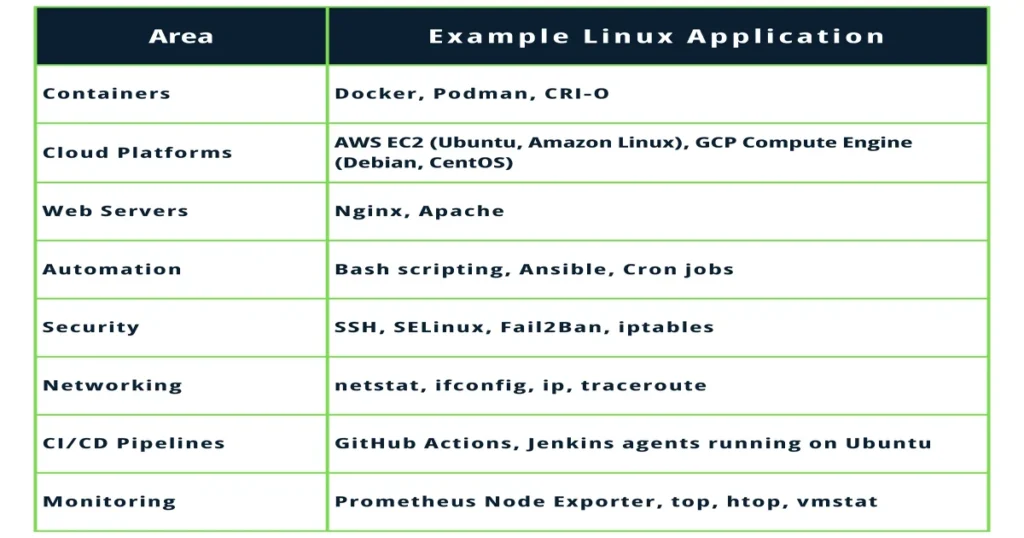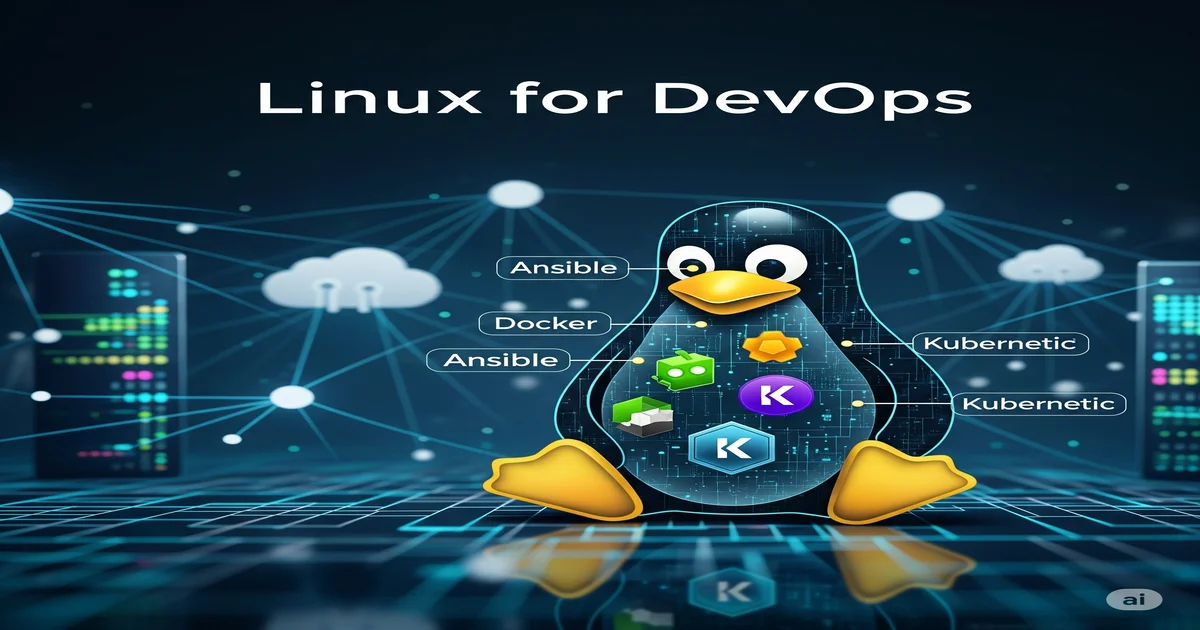🐧 What is Linux?
Linux is an open-source, Unix-like operating system kernel originally created by Linus Torvalds in 1991. It powers everything from smartphones to supercomputers and is the core of countless distributions (distros) like Ubuntu, CentOS, Debian, Fedora, and Alpine.
Unlike proprietary operating systems, Linux is free to use, modify, and distribute, making it the foundation of modern servers, cloud platforms, and containerization technologies—all critical in a DevOps ecosystem.
🚀 Why Do We Need Linux for DevOps?
DevOps is all about automation, scalability, speed, and reliability in software delivery. Linux plays a crucial role in this by offering:
- ✅ Stability & Performance: Linux runs efficiently on minimal hardware, ideal for server-side and cloud deployments.
- 🔒 Security: Built-in user permissions, SELinux, and iptables for system hardening.
- 🧰 Tool Compatibility: Most DevOps tools (Docker, Kubernetes, Jenkins, Ansible, Terraform, etc.) are designed to run natively on Linux.
- 🛠️ Automation-Ready: Supports powerful scripting with Bash and integrates easily with automation tools.
- 📦 Package Management: Tools like apt, yum, and dnf streamline software installation and updates.
Simply put: Linux is the default OS of the cloud—and cloud is the heart of DevOps.
🔍 Linux Use Cases in DevOps
- Infrastructure as Code (IaC) Tools like Ansible, Terraform, and Puppet rely on Linux environments for provisioning infrastructure.
- Continuous Integration/Continuous Deployment (CI/CD) Jenkins agents, GitLab runners, and other CI/CD tools run efficiently in Linux.
- Containerization and Orchestration Docker containers and Kubernetes clusters are built on top of Linux kernel features like namespaces and cgroups.
- Monitoring and Logging Tools like Prometheus, Grafana, and ELK Stack (Elasticsearch, Logstash, Kibana) are often deployed on Linux servers.
- Cloud Computing AWS, GCP, and Azure primarily offer Linux VMs for DevOps workloads.
🧩 Applications of Linux in DevOps

🧠 Must-Know Linux Concepts for DevOps Engineers
To truly leverage Linux in DevOps, engineers should be comfortable with:
📁 File System and Permissions
🔹 Structure: /home, /etc, /var, /opt, /usr
🔹Commands: ls, cd, mkdir, touch, chmod, chown
🖥️ Process and Resource Management
🔹Commands: top, ps, kill, nice, htop, systemctl, journalctl
📡 Networking
🔹 Commands: ping, curl, netstat, ss, traceroute, iptables
🧾 Logs and Monitoring
🔹Files: /var/log/
🔹Tools: tail, grep, less, dmesg, journalctl
🔄 Package Management
🔹apt, yum, dnf, rpm, snap
⏱️ Scheduling Tasks
🔹Tools: cron, at
🧑💻 Shell Scripting
🔹Write Bash scripts to automate backups, deployments, monitoring.
🔐 Security
🔹SSH key management
🔹User and group permissions
🔹Firewalls (UFW, iptables)
🔹SELinux/AppArmor
🎯 Conclusion
If you’re aiming for a DevOps role, mastering Linux isn’t optional—it’s essential. It underpins almost every part of the DevOps lifecycle, from code to deployment, monitoring, and scaling.
Learn Linux once. Use it everywhere.

